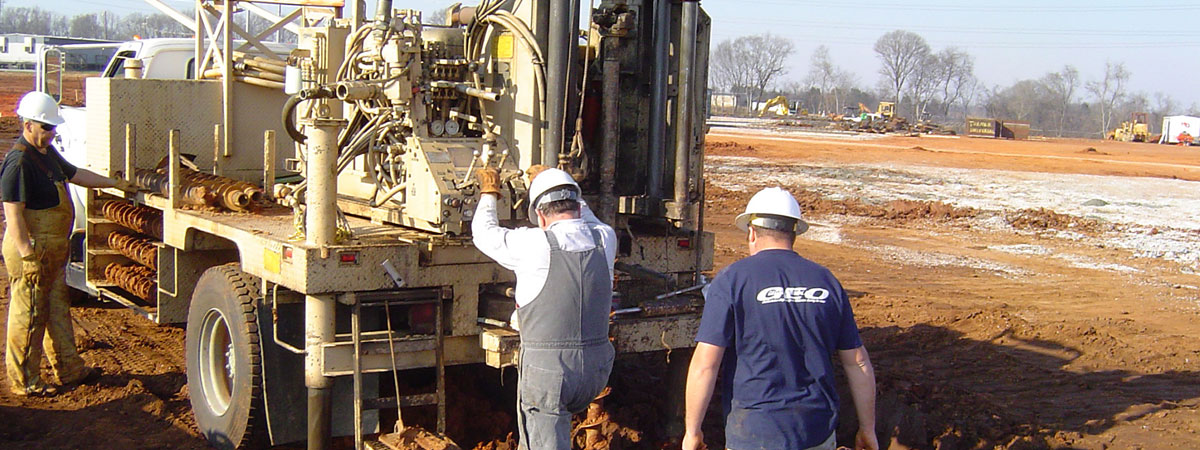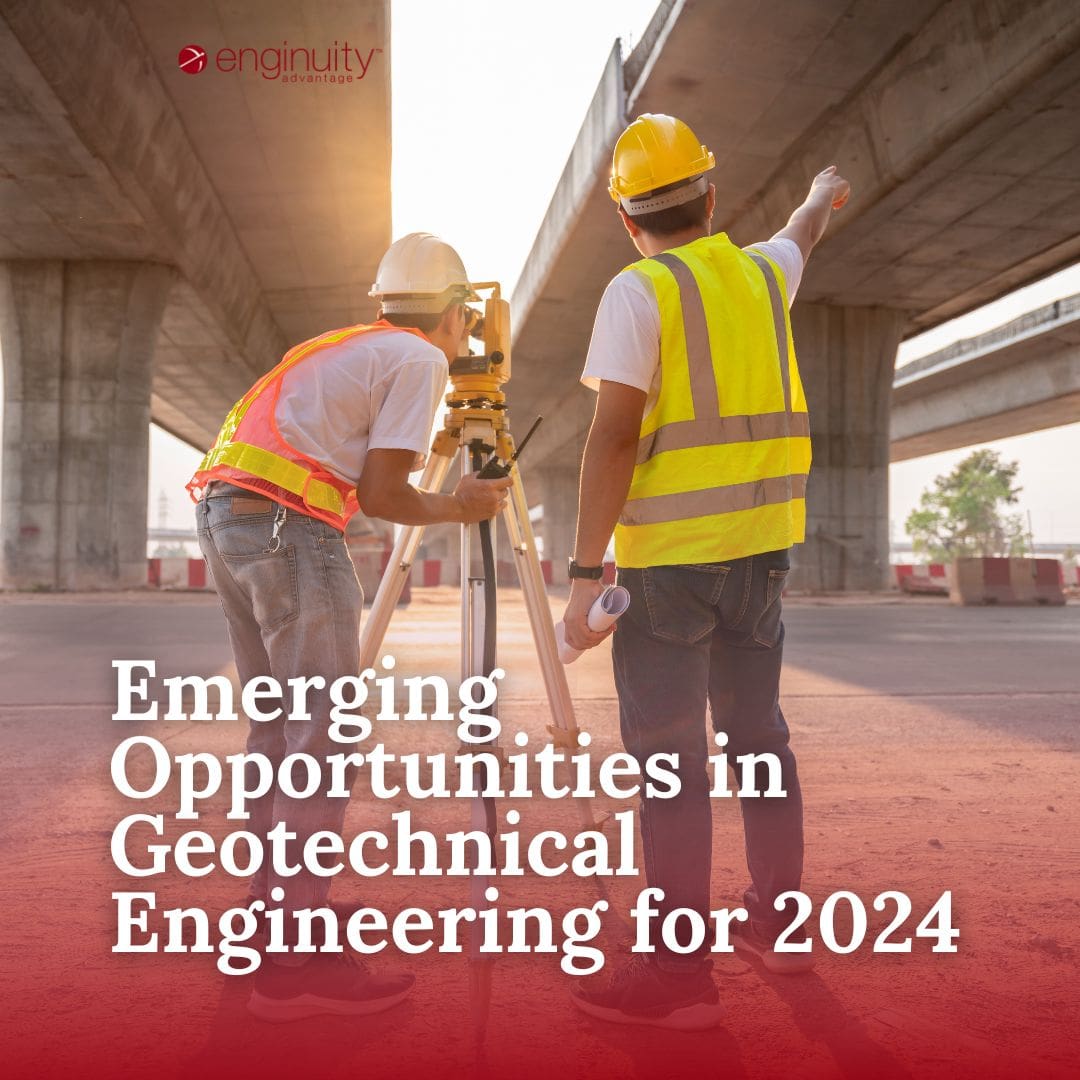Choosing the Right Consulting Engineer for Your Complicated Design Project
Choosing the Right Consulting Engineer for Your Complicated Design Project
Blog Article
Recognizing the Essential Role of the Geotechnical Industry in Modern Building Projects and Facilities Advancement
The geotechnical industry is a foundation of contemporary construction and framework development, offering important insights right into dirt behavior that straight influence task results. With advanced dirt evaluations and cutting-edge engineering remedies, geotechnical experts not just ensure architectural stability yet also address sustainability worries in the middle of advancing environmental standards. As framework demands expand and brand-new obstacles emerge, the significance of this area becomes significantly obvious. What implications might these growths have for future projects and the general safety of our constructed environment?
Value of Dirt Analysis
Soil analysis plays a crucial duty in the geotechnical sector, working as the foundation for informed decision-making in building projects. Accurate soil examination is essential for determining the viability of a website for various types of frameworks, consisting of domestic homes, industrial buildings, and bridges. By assessing dirt make-up, dampness, strength, and thickness material, engineers can expect prospective difficulties and reduce threats connected with ground instability, disintegration, and settlement.
The assessment procedure normally entails a collection of examinations and observations that provide crucial info concerning the subsurface conditions. This information notifies the layout and building procedures, ensuring that structures are constructed on strong ground with ample support. In addition, recognizing the soil profile makes it possible for designers to select suitable construction approaches and materials, optimizing source utilization and decreasing expenses.
Along with making sure structural honesty, soil assessment adds to ecological sustainability. By recognizing prospective contamination or adverse impacts on bordering ecological communities, engineers can apply methods to protect these natural deposits. In general, thorough dirt evaluation is crucial in the geotechnical field, underpinning the security, effectiveness, and ecological obligation of construction tasks.
Secret Geotechnical Strategies
A variety of essential geotechnical methods are utilized to examine and boost the security and efficiency of building websites. One foundational method is soil sampling and testing, which allows designers to identify the physical and chemical residential properties of the ground. This information is important for making informed decisions pertaining to structure style and building methods.
An additional crucial strategy is website characterization, which involves the detailed assessment of dirt and rock problems via approaches such as borehole boring and in-situ screening. Techniques like Criterion Infiltration Tests (SPT) and Cone Infiltration Examinations (CPT) supply valuable data on dirt toughness and stratigraphy.
Ground enhancement methods, such as soil stabilization and grouting, are likewise crucial in enhancing the load-bearing ability of weak dirts. These approaches can alleviate settlement and improve general website problems.
In addition, slope security evaluation is vital for recognizing potential landslide dangers and ensuring the security of excavations. This evaluation frequently utilizes mathematical modeling and limit equilibrium techniques to forecast soil habits under different problems.
Including these geotechnical techniques into construction planning not only optimizes task outcomes however additionally makes certain the lasting sustainability of framework advancement.
Effect On Construction Security

In addition, efficient geotechnical engineering entails applying reduction techniques for determined dangers. This might include soil stablizing strategies, retaining structures, or drainage systems to relieve hydrostatic pressure. By dealing with these factors, construction teams can minimize the possibility of crashes and enhance employee safety and security.
Furthermore, constant surveillance of site problems geotechnical engineers is critical during construction. Geotechnical tools can give real-time information concerning ground activity and security, permitting for timely treatments when required.
Basically, the geotechnical sector plays an essential function in guarding building jobs. By prioritizing ground honesty and utilizing extensive evaluation methods, the geotechnical industry not just safeguards the workforce but also adds to the longevity and reliability of constructed framework.
Sustainability in Geotechnical Practices

In addition, geotechnical engineers are now using innovative technologies, such as geosynthetics, which enhance soil stability while decreasing the volume of product needed. This not just saves resources yet also causes less waste generation (geo tech engineer). The combination of sustainable style principles right into geotechnical engineering encourages using eco-friendly energy resources in building and construction processes, better lowering carbon discharges
By carrying out these assessments, geotechnical professionals can create strategies that minimize damaging effects, making sure compliance with environmental laws. In general, the focus on sustainability within geotechnical methods not just adds to the longevity and strength of facilities but additionally advertises a responsible technique to land and source management.
Future Trends in Geotechnical Engineering
Development is driving the future of geotechnical design, as emerging innovations and methods reshape the industry. The assimilation of innovative data analytics and man-made knowledge is readied to change site investigation and threat evaluation, enabling engineers to make more informed choices based upon real-time data. Moreover, using geosynthetic products is obtaining traction, using sustainable remedies that improve soil security and decrease environmental effect.
An additional significant fad is the fostering of automated and robot systems for surveillance and building procedures. These technologies not just boost accuracy however likewise improve safety and security by reducing human involvement in harmful atmospheres. In addition, the execution of Structure Information Modeling (BIM) in geotechnical layout facilitates improved partnership among stakeholders, maximizing job delivery and minimizing expenses.
As climate change poses new difficulties, the market is progressively focusing on durability and adaptability in design techniques, making sure infrastructure can endure extreme climate occasions. The continuous trend towards sustainability will drive technology in environmentally friendly products and methods, aligning geotechnical engineering with more comprehensive ecological objectives. Jointly, these patterns will shape a much more efficient, sustainable, and resistant geotechnical landscape for future jobs.
Final Thought

The geotechnical industry is a keystone of modern-day building and facilities advancement, supplying critical insights into dirt habits that directly affect job end results. engineer of record.Dirt assessment plays a critical function in the geotechnical industry, offering as the foundation for informed decision-making in building projects. Generally, extensive dirt assessment is essential in the geotechnical field, underpinning the security, performance, and ecological duty of construction tasks
Construction security is significantly influenced by geotechnical practices, as the security and honesty of the ground directly influence the general safety of a construction site.In final thought, the geotechnical industry is important in modern-day construction and infrastructure growth, offering essential evaluations that make certain architectural stability and safety and security.
Report this page